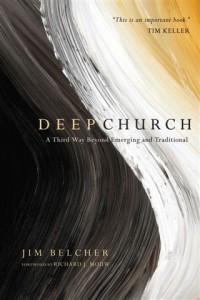Today I had the pleasure of sharing a few insights on mission and worldview to the members of the ‘College Green’ pastoral group at Trinity College.. This group has pioneered and developed a chaplaincy which seeks to serve and bear witness to the young people who gather outside of Bristol Cathedral. Further information can be found here. The session today was intended to provide a theoretical/theological/philosophical basis for using worldviews in evangelism. On a practical level we will be using a modified version of the UCCF worldview questionnaire to engage in discussion.
If any church or group would like me to come and lead an interactive workshop on ‘Worldview and Mission’ then I would be more than happy to assist. There would be no charge for any group in the Bristol area and for anyone else, within reason, I would only ask that traveling expenses be covered. If interested then just leave a comment on this post. I can get references for those who want to know that I am kosher and can communicate effectively. I have previously discussed this material at West Yorkshire School of Christian Studies, local churches and a ‘Exploring Vocations’ retreat.
The following is primarily aimed as a resource bank for the pastoral group.
My presentation can be found using the following link.
I mentioned 2 books in my presentation.
Walsh and Middleton, Transforming Vision which introduces the reader to a Christian worldview. This book, if i remember rightly, takes a look at the worldview questions.
Where are you? Who are you? What is the problem? What is the solution? Where are we going? It will be worth checking out my mate, Mark Roques’ website who has a great page on the worldview questions and sketches out a number of answers from different worldviews. Also check out his podcasts.
I also recommended N.T Wright’s ‘New Testament and the People of God’ which provided the story, symbols, q+a, praxis part of my presentation. This book is great and will greatly assist you in hermeneutics and study of the New Testament. It is meaty and is not directly related to mission or evangelism. If this is your first year of theological training it may be best to leave on hold for a while. I think that it would be great to try and sit down and sketch out the worldviews of some of the young people you have met. What is their praxis? symbol? story? answers to worldview questions.
If you are interested in the Christian metanarrative and a holistic understanding of mission then check out some of the audio lectures by Micheal Goheen.






